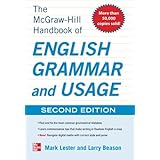antonym (Also antonyms) : Related Words Words similar in meaning to antonym
- opposite word«
- opposite«
- antonym«
- indirect antonym«
- direct antonym«
- converse«
- complementary«
- contrary«
- contradictory«
- relational antonym«
- counterpoint«
- polar antonym«
- antonymous«
- contradictoriness«
- gradable antonym«
- contrastive«
- contrast«
- complementary antonym«
- incompatible«
- repugnance«
- binary antonym«
- autoantonym«
- negation«
- antonymy«
- mutual exclusiveness«
- incompatibility«
- antonymic«
- inconsistency«
- thesaurus«
- counterbalance«
- contradiction«
- demarcation«
- heteronym«
- word«
- detournement«
- foil«
- counterterm«
- dividing line«
- negative«
- direct contrast«
- conflict«
- line«
- belie«
- negate«
- contravene«
- contradict«
- self-contradictory«
- confounding«
- mutually exclusive«
- at odds«
- contrasting«
- oppose«
- deny«
- conflicting«
- catchword«
- retronym«
- anagram«
- metonym«
- palindrome«
- descriptor«
- signifier«
- four-letter word«
- four-letter Anglo-Saxon word«
- neologism«
- synonym«
- homonym«
- counterpoise«
- deictic word«
- deictic«
- partitive«
- cognate word«
- cognate«
- reduplication«
- nonce word«
- quantifier«
- logical quantifier«
- superordinate word«
- superordinate«
- hapax legomenon«
- monosyllabic word«
- back-formation«
- polysyllabic word«
- loanword«
- negativism«
- classifier«
- derivative«
- diminutive«
- terminology«
- enhancer«
- negativity«
- nomenclature«
- charade«
- counterweight«
- phrase«
- coinage«
- denial«
- denier«
- primitive«
- jar«
- written word«
- word form«
- subordinate word«
- spoken word«
- polysemous word«
- polysemantic word«
- open-class word«
- key word«
- head word«
- guide word«
- function word«
- equivalent word«
- dirty word«
- content word«
- closed-class word«
- contraction«
- cancellation«
- equaliser«
- hybrid«
- subordinate«
- vocable«
- troponym«
- trisyllable«
- syncategoreme«
- syncategorem«
- self-contradiction«
- proparoxytone«
- polysyllable«
- polysemant«
- paroxytone«
- oxytone«
- oppositeness«
- neology«
- negativeness«
- monosyllable«
- meronym«
- loanblend«
- loan-blend«
- hyponym«
- hypernym«
- holonym«
- headword«
- guideword«
- disyllable«
- dissyllable«
- disaffirmation«
- anaphor«
- manner name«
- term«
- equalizer«
- substantive«
- whole name«
- part name«
- language«
- form«
- loan«
- point of no return«
- balance«
- dissident«
- contest«
- clash«
- statement«
- head«
- opposition«
- antipode«
- homophone«
- determinative«
- etymon«
- conceptualisation«
- portmanteau word«
- portmanteau«
- antithesis«
- determiner«
- referent«
- conceptualization«
- abbreviation«
- untruth«
- toponymy«
- falsity«
- foretelling«
- verbiage«
- idiomatic expression«
- universal quantifier«
- existential quantifier«
- phraseology«
- phrasal idiom«
- idiom«
- modifier«
- preposition«
- prognostication«
- toponomy«
- pronoun«
- quotation«
- existential operator«
- acronym«
- singular form«
- singular«
- jawbreaker«
- understatement«
- falsehood«
- noun«
- conjunctive«
- inverse«
- tertium quid«
- trigram«
- diction«
- formulation«
- verb«
- lilliputian«
- plural form«
- plural«
- flyspeck«
- phrasing«
- rhetorical question«
- annunciation«
- set phrase«
- restatement«
- promulgation«
- misstatement«
- antagonism«
- polarity«
- markup language«
- articulation«
- connective«
- logic«
- petite«
- verbal description«
- description«
- wording«
- redact«
- blend«
- solvent«
- prediction«
- root word«
- main entry word«
- ghost word«
- entry word«
- proposition«
- solution«
- root«
- explanation«
- theme«
- coin«
- mathematical statement«
- qualification«
- expression«
- particle«
- reservation«
- proclamation«
- citation form«
- reverse«
- truth«
- cautious statement«
- true statement«
- ungradable opposition«
- tetragram«
- sum-up«
- sesquipedalian«
- sesquipedalia«
- homograph«
- gradable opposition«
- explicandum«
- explanans«
- explanandum«
- contrariety«
- continuative«
- bigram«
- antigram«
- relation«
- assurance«
- forecasting«
- frame«
- flip side«
- summary«
- reply«
- pleading«
- recital«
- representation«
- choice of words«
- input«
- bantam«
- commentary«
- declaration«
- midget«
- value statement«
- mean«
- dissent«
- cast«
- stem«
- remark«
- resolution«
- conjunction«
- couch«
- answer«
- voice«
- bid«
- bidding«
- amendment«
- base«
- qualifier«
- estimate«
- understanding«
- mutual opposition«
- radical«
- thing«
- response«
- announcement«
- sign«
- account«
- agreement«
- condition«
- comment«
- result«
- tell«
- say«
- put«
- state«
- Wiktionary:Semantic relations«
- Rubicon«
- Latinism«
- Gallicism«
- Bill of Rights«



